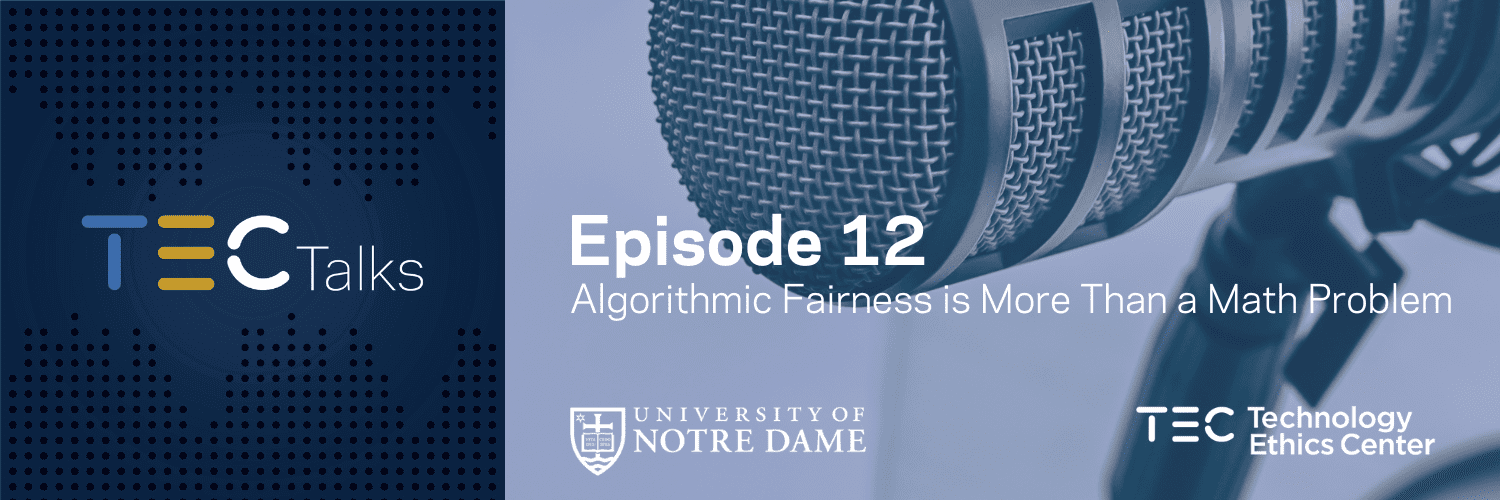Algorithmic Fairness is More Than a Math Problem

Host Kirsten Martin is joined by Ben Green, an assistant professor at the Gerald R. Ford School of Public Policy and a postdoctoral scholar in the Michigan Society of Fellows at the University of Michigan. Specializing in the social and political impacts of government algorithms, with a focus on algorithmic fairness, smart cities, and the criminal justice system, Ben is also an affiliate of the Berkman Klein Center for Internet & Society at Harvard University and a fellow of the Center for Democracy & Technology.
He came on the show to talk about his paper “Escaping the Impossibility of Fairness: From Formal to Substantive Algorithmic Fairness,” which recently appeared in Philosophy & Technology.
Ben begins by explaining the aforementioned “impossibility of fairness,” an idea that describes the incompatibility of different mathematical notions of what makes a system fair. By focusing on meeting one of these formal definitions of fairness, an algorithm that is mathematically “fair” can nevertheless yield decisions that re-entrench real-world injustices, including those it may have been designed to counter.
Asking whether the ultimate purpose of an algorithm is to satisfy a mathematical formalism or rather improve society, Ben puts forward an alternative notion of what he calls substantive algorithmic fairness—his detailed diagram of which, labelled Figure 2 in the paper, made a lasting impression on Kirsten. His approach still envisions a role for mathematical conceptions of fairness, but it repositions them as one consideration in a broader process where the primary concern is accounting for and mitigating both upstream inequalities that exist before an algorithm is deployed and downstream harms present afterwards.
Additional Resources
Presented by Notre Dame Technology Ethics Center
- Paper Discussed in the Episode: “Escaping the Impossibility of Fairness: From Formal to Substantive Algorithmic Fairness”
- Note: Figure 2 referenced in the episode appears on p. 17.
- Ben’s Bio
- Episode Transcript
At the end of each episode, Kirsten asks for a recommendation about another scholar in tech ethics (or several) whose work our guest is particularly excited about. Ben highlighted four he says are working at the intersections of AI, ethics, race, and real-world social impact:
- Rashida Richardson (Northeastern University)
- Anna Lauren Hoffmann (University of Washington)
- Lily Hu (Yale University)
- Rodrigo Ochigame (Leiden University)
